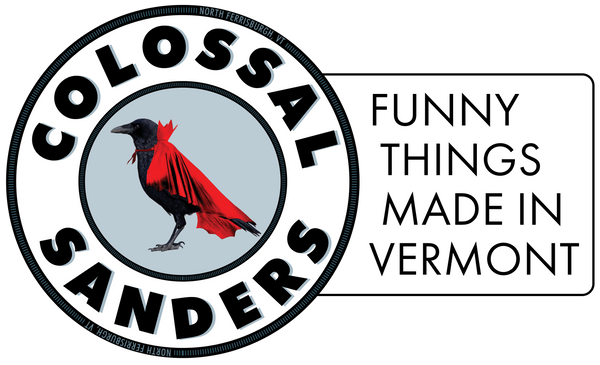Canned Air FAQs
 Frequently Asked Questions
Frequently Asked Questions
Can I take this on an airplane?
Yes. TSA allows sealed cans through security. We've personally taken these through multiple airports, large and small as well as in checked bags with a 100% success rate. (Note: Not TSA-approved if you open the can and fill it with root beer)
Your can will expand noticeably during flight (cabins are pressurized to about 8,000 feet equivalent). This is normal and actually demonstrates how it works. The person next to you may have questions. Best to brush up on your atmospheric science before arriving to the airport.
Will it explode or leak?
No. The can isn't pressurized like soda. It contains regular atmospheric air at the pressure it was sealed (about 14.7 psi at our elevation).
For perspective: a can of soda is pressurized to about 50-60 psi. Our can would need to experience a pressure differential of 30+ psi to be at any risk of failure.
To create that kind of differential, you'd need to either take it to an altitude of about 100,000 feet (three times higher than commercial jets fly) or heat it to approximately 900°F (your oven maxes out around 500°F).
Neither scenario is happening in normal use. Or abnormal use. The aluminum is strong enough to handle any realistic expansion or contraction without rupturing or losing its seal.
Does it expire?
No. As long as the seal remains intact, the air inside stays at its original pressure indefinitely. The can will continue responding to environmental changes for years.
Can I open it and reseal it?
You can open it, but you can't reseal it in a way that preserves its function. Once opened, it's just an empty can. The whole point is the sealed air at a specific pressure.
Some people repurpose opened cans as pen holders or planters. That's fine. But it won't work as a barometer anymore.
What if it gets dented?
Minor dents don't affect function as long as the seal isn't compromised. The can will still respond to pressure changes. Deep dents or punctures will break the seal and ruin it.
Treat it like you'd treat any aluminum can. Don't throw it in a backpack with sharp objects.
Can I ship this as a gift?
Yes. Standard shipping is fine. The can won't be affected by changes in pressure during transport.
One fun thing: if you ship a Vermont can (sealed at 342 feet) to someone in Denver (5,280 feet), it will arrive noticeably expanded. That's not damage, that's physics.
How cold or hot can it get?
The can handles normal temperature ranges fine. Refrigerator, freezer, hot car, hot water bath—all good.
Avoid extreme sustained heat (like leaving it on a dashboard in Arizona summer for days) or extreme sustained cold (Antarctica, deep freeze for weeks). Common sense applies.
Does humidity affect it?
No. The can responds to atmospheric pressure, not humidity. High humidity doesn't change how it works.
What's the shelf life?
Indefinite, as long as the seal holds. The aluminum won't degrade. The air inside won't "go bad." This thing will outlast most of your other souvenirs.
Can I get a replacement if mine breaks?
If the seal fails due to manufacturing defect, contact us. If you dropped it off a mountain or ran over it with your car, that's on you.
Why does mine feel different than my friend's?
If you and your friend are at different elevations, your cans will feel different. A can in Burlington (200 feet) feels softer than the same can in Stowe (1,600 feet).
Also, if your cans were sealed on different days with different weather conditions, they might have slightly different baseline pressures.
Is this actually educational or just a gimmick?
Both. It's absolutely a gimmick. It's also a legitimate demonstration of atmospheric pressure that teachers can use in classrooms.
What do I do with it?
Whatever you want. Put it on a shelf. Take it hiking. Use it to predict weather. Show it to your kids. Confuse airport security. Squeeze it obsessively while explaining pressure differentials to anyone who will listen. Be a nerd, you nerd.
Remember: There's no wrong way to use a can of air.
